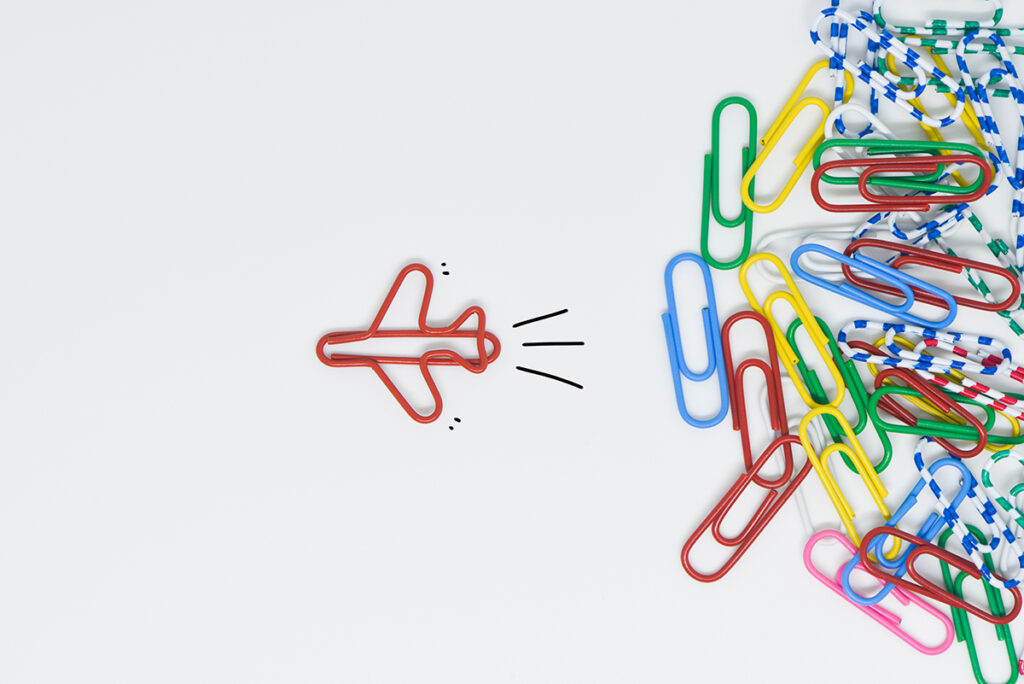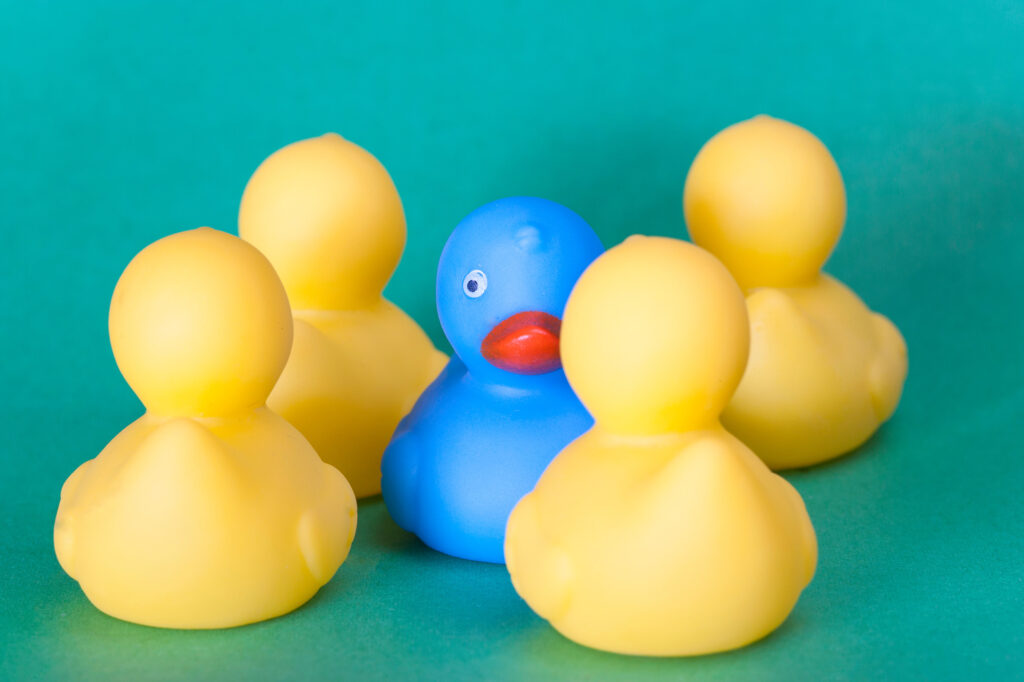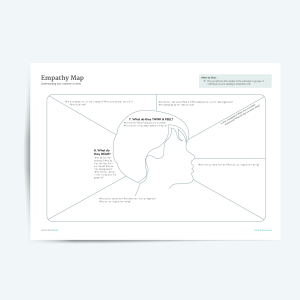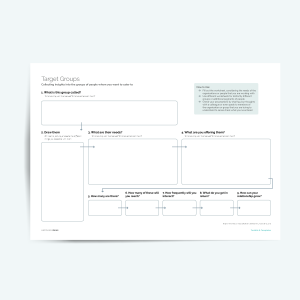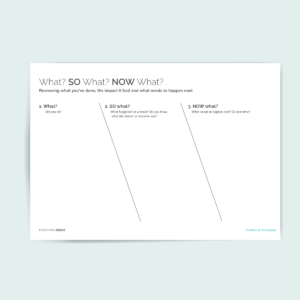Hatching Ideas was recently invited to present to the NatWest Entrepreneur Accelerator team at one of their away days. During my session with the team, I covered “What makes a good consultant?” – based on having worked as a consultant, with consultants, and more recently in developing my own consultancy practice.
Here are some of the headlines shared with the group…
Invest time and energy into relationships
Building strong relationships with clients is one of the most important (and sometimes most frustrating!) parts of being a consultant. Research into service-based industries has shown that building rapport is key to developing positive client relationships, and results in improved satisfaction, loyalty, and word-of-mouth communication[mfn]Gremler, D.D. and Gwinner, K.P., 2000. Customer-employee rapport in service relationships. Journal of Service Research, 3(1), pp.82-104.[/mfn]. The same piece of research revealed that for rapport to be fostered, interactions need to be both enjoyable, and develop a personal connection.A similar research piece by the Harvard Business Review into hundreds of brands, revealed that one of the most effective ways to maximise a clients’ value is to focus beyond just satisfaction levels and instead connect with them on an emotional level[mfn]Magids, Zorfas, & Leemon. 2015. The New Science of Customer Emotions. Harvard Business Review.[/mfn].
Sometimes, our perception of what it means to be the ‘consummate professional’ can come at the expense of developing authentic and meaningful connections with the people we work with.
Many consultancy firms recognise the value of these rapport building skills and have introduced steps to test these skills into recruitment processes
For example: Newton Europe, a management consultancy that claims to have “one of the most rigorous recruiting processes in the industry”[mfn referencenumber=’3′]
Newton Europe. (2019). This is you to the Nth Degree. London. Newton Europe Ltd. p. 27. [/mfn] and that pays some of the highest published graduate starting salaries in the UK[mfn referencenumber=’4′]High Flyers Research. (2019). The Graduate Market in 2019: Annual review of graduate vacancies & starting salaries at the UK’s leading employers. London. High Fliers Research Ltd. p. 5. [/mfn], gets their graduate applicants to undertake tests that measure their emotional intelligence and ability to develop relationships with others, in addition to the standard numeracy and literacy tests.
What does that mean for us?
To be clear… this is not a recommendation to start intentionally seeking to develop friendships with your clients. Although sometimes mutually inclusive – friendship is not the aim, as it can make it difficult to maintain objectivity. Instead, the aim is to develop a meaningful connection with our clients whilst also remaining respectful of professional boundaries.
A fabulous book that explores our ability to develop personal connections with others through vulnerability is Brene Brown’s “Dare to Lead”. Brene became famous after a TedTalk where she explored the power of connecting with others through sharing of our own vulnerability. Try putting a few of her recommendations into action on a small scale, and see what reaction you get!
"Always be seeking, connecting, solving, asserting, believing, seeing, and yes, testing."
Seth Godin, This is Marketing
Understand the people you work with
The relationship is the stepping stone that provides the consultant with the opportunity to really understand their clients. This includes where they’re coming from, where they’re trying to get to, what they’re worried about, and what they’re experiencing during the process.
Having sympathy for one’s clients is a valuable first step towards developing an understanding of your client; however, empathy provides an even deeper appreciation into what they’re going through and consequently what opportunities exist to support them.
To start developing a deeper understanding of your clients – try downloading and using the ‘Target Groups’ or ‘Empathy Map’ tools available below
A rarely touched upon objective in the ‘client consultant relationship’ is the importance of understanding your clients fundamental motivations and values – what is truly important to them, and why. The answers to these questions can vary massively – from fostering a personal sense of security, through to acquiring material possessions and status.
Being sensitive to people’s emotions, particularly within a particular environment, provides an indication of values – which in turn also gives you a sense of what is important within that organisation’s culture.
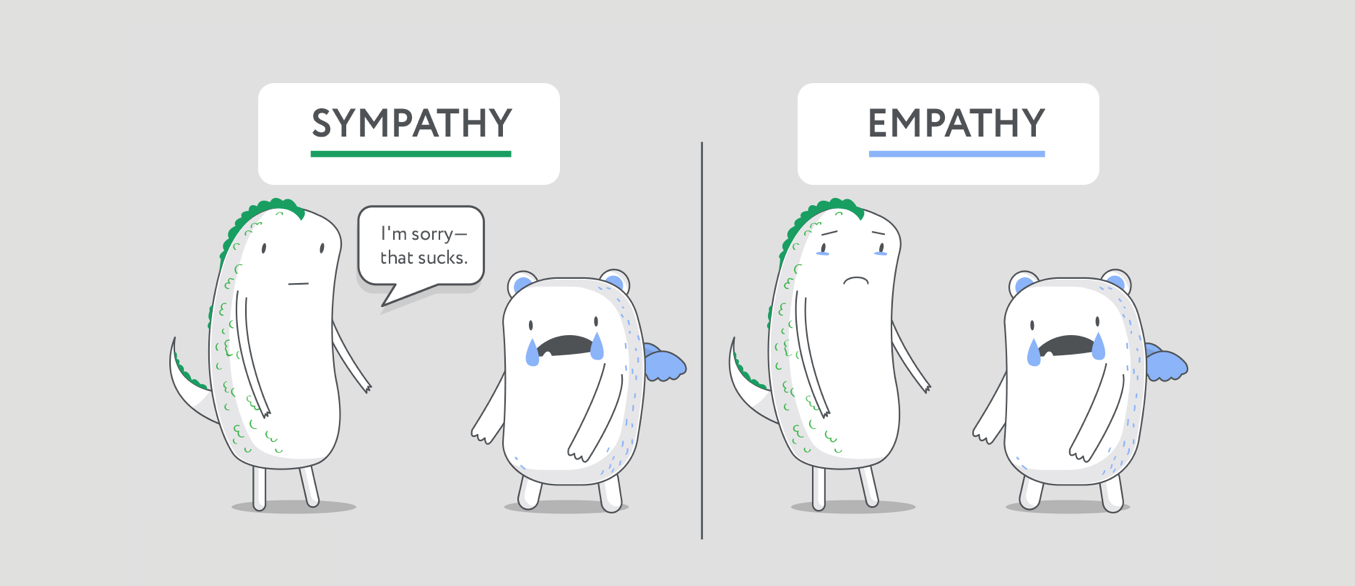
Always curious, always learning
Consultants are usually commissioned for their track record and expertise within a given arena. Their ability to quickly identify and solve a clients’ challenges, based on their experience of solving similar problems elsewhere, is often one of their most desirable attributes; however, this also provokes a challenging paradigm: to be both informed and inquisitive at the same time.
It’s not always easy to do this, and can be the option between choosing the high road and the low road. Ironically, in fields focusing on people, where it is frequently said that ‘people are our most important asset’ there is rarely much incentive to try and change existing practices[mfn referencenumber=’5′]Gill, C. 2018. Don’t know, don’t care: An exploration of evidence based knowledge and practice in human resource management. Human Resource Management Review. Pages 103-115[/mfn].
"Good consultant has survived by learning and growing. Good consultant evolves her skillset, she stays on the cutting edge of her area of expertise."
Miguel Jimenez, Good Consultant, Bad Consultant
An article by Business Analyst Miguel Jimenez entitled called ‘Good Consultant, Bad Consultant‘ aptly describes some of the attributes required to achieve this, including: a vigour to validate assumptions, to stick one’s neck out, and play “the long game” rather than focus on short-term deliverables[mfn referencenumber=’6’]Jimenez, M. 2012. Good Consultant, Bad Consultant. Medium.com.[/mfn].
With so much to explore and examine – of your own processes and your clients – that it can be hard to find a starting point. At the very least, make it a habit to review past projects and work you’ve undertaken, and reflect upon what you did, the impact it had, and what else could have been done or should be done next time around.
 One way to reflect and refine a process is to use the ‘What? SO what? NOW what?’ framework. Available to download for free here.
One way to reflect and refine a process is to use the ‘What? SO what? NOW what?’ framework. Available to download for free here.
Free PDF Resources to Download
Hopefully all of this provides some guiding points for your own future consultancy work, in whatever field that may be.
If you’re interested in seeking support on any of these areas, get in touch – we’d love to hear from you.
